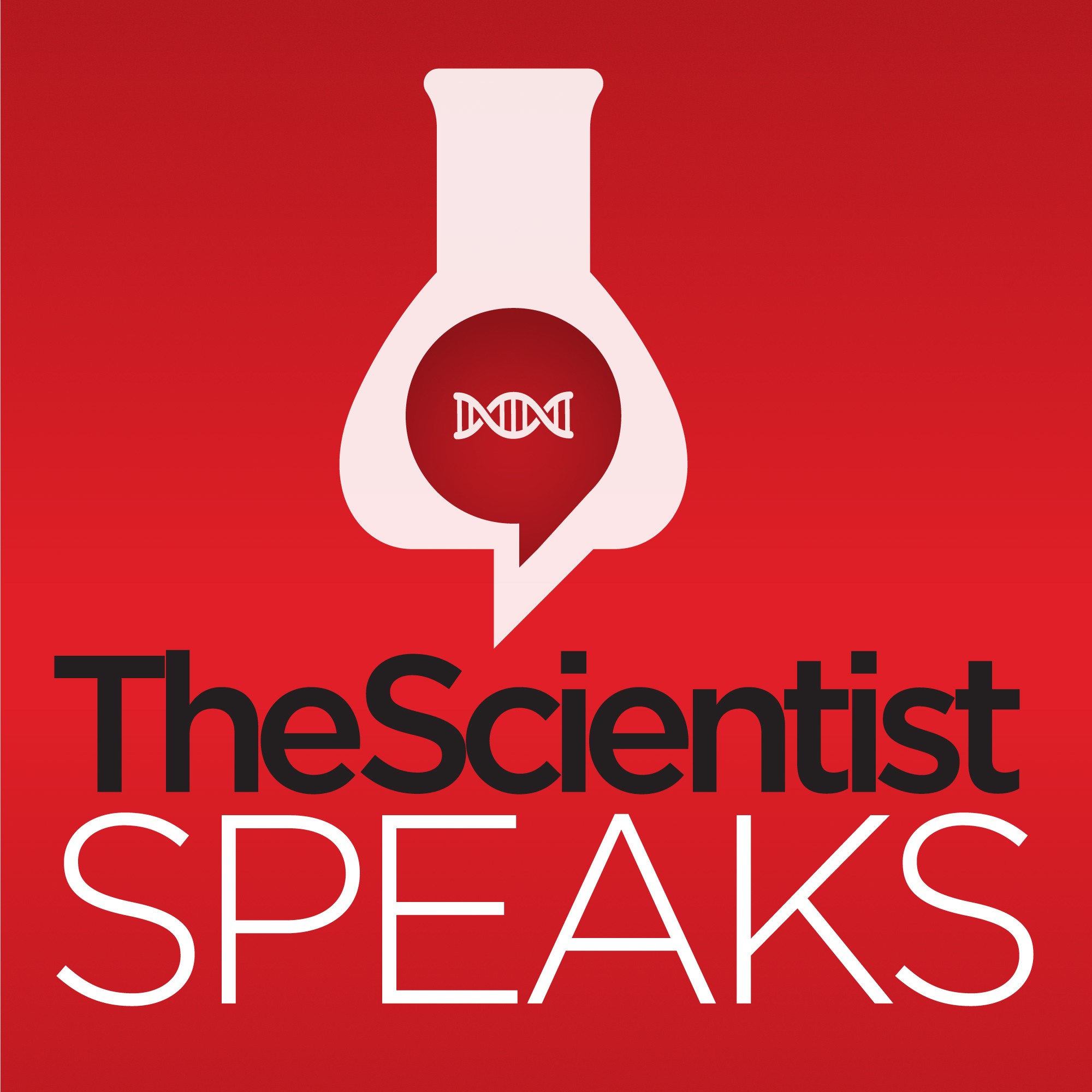Episodes
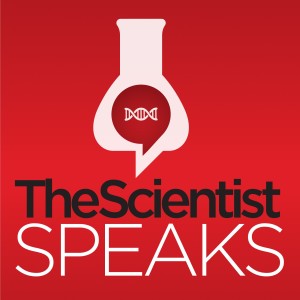
Wednesday Sep 27, 2023
Smart Gateways into the Lab of the Future
Wednesday Sep 27, 2023
Wednesday Sep 27, 2023
As bioengineers incorporate smart technology into more aspects of the scientific process, these updates promise to digitize and automate laborious, repetitive research tasks while simultaneously transforming the laboratory into a more accessible and connected environment. This episode highlights cutting-edge smart technologies that allow scientists to take their research to the next level by streamlining common experimental workflows.
In this month’s episode, Deanna MacNeil from The Scientist’s Creative Services Team spoke with Sofie Salama and David Haussler, professors at the University of California, Santa Cruz, to learn more about the smart technology behind growing brain organoids.
The Scientist Speaks is a podcast produced by The Scientist’s Creative Services Team. Our podcast is by scientists and for scientists. We bring you the stories behind news-worthy molecular biology research. This month's episode is sponsored by Benchling.

Friday Jul 28, 2023
Fecal Microbiota Transplants: From Gut Infections to Psychiatric Disorders
Friday Jul 28, 2023
Friday Jul 28, 2023
Fecal transplantation is an established procedure for controlling recurrent Clostridium difficile infection by replenishing healthy bacteria in the gut. Researchers explore novel applications of fecal transplantation for treating other conditions, including psychiatric disorders. In this episode, Iris Kulbatski from The Scientist’s Creative Services Team spoke with Ian Carroll, an assistant professor in the Department of Nutrition at the University of North Carolina at Chapel Hill, and Kylie Reed, a PhD candidate in Carroll’s laboratory, to learn how the current understanding of treating infectious disease with fecal transplantation drives new applications of this therapy for psychiatric conditions such as eating disorders.
The Scientist Speaks is a podcast produced by The Scientist’s Creative Services Team. Our podcast is by scientists and for scientists. Once a month, we bring you the stories behind news-worthy molecular biology research.
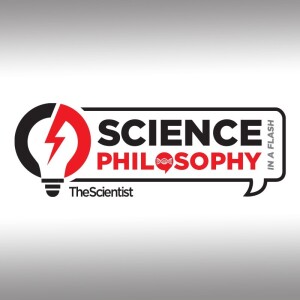
Monday Jul 24, 2023
Science Philosophy in a Flash: Starting with Human Cell Systems
Monday Jul 24, 2023
Monday Jul 24, 2023
Xitiz Chamling is an assistant professor of ophthalmology at Johns Hopkins University School of Medicine. From vision research to the pursuit of multiple sclerosis treatments, his philosophy of science centers human-based systems to study the neuroprotective layer called myelin, which surrounds and insulates nerves cells.
In this episode, Deanna MacNeil from The Scientist’s Creative Services Team spoke with Chamling to learn more about his latest work combining stem cell and CRISPR-Cas9 technologies to break away from conventional high throughput drug screening platforms that rely on rodent cells.
To learn more about Chamling's research, please check out this article.

Wednesday May 31, 2023
Targeting the Undruggable
Wednesday May 31, 2023
Wednesday May 31, 2023
Disease-relevant molecules that cannot be pharmacologically targeted are sometimes referred to as undruggable, and in cancer, a number of proteins fall into this category. With innovation and new technologies, researchers make breakthroughs that turn evasive targets into druggable ones. Recent successes in establishing therapeutics against mutant oncoproteins, such as KRAS, transform the treatment landscape for patients and clinicians. A scientist who takes a unique approach to clinical trial design demonstrates how targeted small molecules are shifting drug discovery paradigms in oncology to better treat pancreatic cancer.
In this episode, Deanna MacNeil from The Scientist’s Creative Services Team spoke with David Hong, the Dougie Johnson Endowed Professor and clinical medical director of the clinical trial research unit at MD Anderson Cancer Center, to learn more.
The Scientist Speaks is a podcast produced by The Scientist’s Creative Services Team. Our podcast is by scientists and for scientists. Once a month, we bring you the stories behind news-worthy molecular biology research. This month's episode is sponsored by NanoTemper.
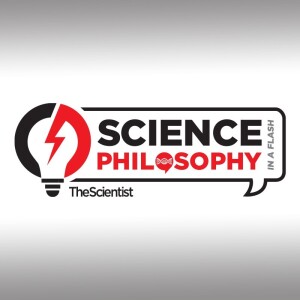
Tuesday May 30, 2023
Science Philosophy in a Flash: Relevant Models Reflect Real-World Needs
Tuesday May 30, 2023
Tuesday May 30, 2023
Jie Sun is a professor in Infectious Diseases and International Medicine at University of Virginia School of Medicine and associate director for Scientific Programs at the Carter Immunology Center. His philosophy of science prioritizes physiologically relevant infection models to tackle real-world clinical needs with research. In their latest work, Sun’s research team identified genetic and pharmacologic pathways that attenuate severe flu or COVID-19 infection and reduce blood glucose levels that spike after viral pneumonia.
In this episode, Deanna MacNeil from The Scientist’s Creative Services Team spoke with Sun to learn more about his philosophy of science, which prioritizes physiologically relevant models of infection to tackle real-world clinical needs with research.
To learn more about Sun's research, check out this article.
Science Philosophy in a Flash is a series of mini podcasts produced by The Scientist’s Creative Services Team. With a focus on the people behind the science, this podcast highlights researchers’ unique outlook on what motivates their pursuit of science and what it means to be a scientist.

Tuesday May 09, 2023
Science Philosophy in a Flash: Targeting a Genetic Accident to Treat Disease
Tuesday May 09, 2023
Tuesday May 09, 2023
David Liu is a professor in the Department of Chemistry and Chemical Biology at Harvard University. Liu’s lab has introduced breakthrough technologies to the field of genome editing, including base editing and prime editing, with the aim of treating genetic diseases. In their latest work, his research team took a “no stone unturned” approach to determine a one-time base editing strategy to treat the motor neuron disease, spinal muscular atrophy (SMA).
In this episode, Deanna MacNeil from The Scientist’s Creative Services Team spoke with Liu to learn more about his philosophy of science, which involves an appreciation of fundamental principles in chemistry and evolution.
To learn more about Liu's research, check out this article.
Science Philosophy in a Flash is a series of mini podcasts produced by The Scientist’s Creative Services Team. With a focus on the people behind the science, this podcast highlights researchers’ unique outlook on what motivates their pursuit of science and what it means to be a scientist.
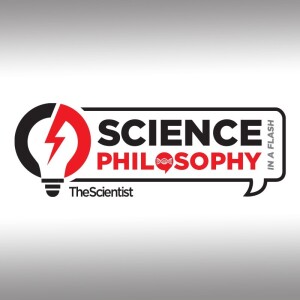
Tuesday Apr 11, 2023
Science Philosophy in a Flash: A Surprising Way to Repair Scar Tissue
Tuesday Apr 11, 2023
Tuesday Apr 11, 2023
Claire Higgins is reader in the department of bioengineering at Imperial College London. Her philosophy of science involves a problem-solving approach to research, where she models tissue growth, development, and repair using human skin and hair follicles. In their latest work, her research team transplanted hair follicles into human skin scars in an attempt to make that tissue healthy again.
In this episode, Iris Kulbatski from The Scientist’s Creative Services Team spoke with Higgins to learn more about how she takes an engineering-inspired, problem-solving approach to her research.
To learn more about Higgins's research, check out this article.
Science Philosophy in a Flash is a series of mini podcasts produced by The Scientist’s Creative Services Team. With a focus on the people behind the science, this podcast highlights researchers’ unique outlook on what motivates their pursuit of science and what it means to be a scientist.

Thursday Mar 30, 2023
Genomes Across the Tree of Life
Thursday Mar 30, 2023
Thursday Mar 30, 2023
Scientists often refer to DNA as the blueprint of a cell. Whether the genetic material is single stranded or double stranded, linear or circular, organisms across the tree of life rely on their genomic blueprint for instructions on living, growing, and reproducing. Due to the amount of information carried by this blueprint, the size of the genome poses a biological dilemma; from humans to single-celled aquatic organisms, all eukaryotes must find a solution for organizing their DNA into a tiny nuclear space. In the quest for better tools to understand the 3D genomic architecture and the biological challenge of chromosome folding, a team of biochemistry and systems biology researchers investigated the unique genomic organization of unicellular marine plankton, dinoflagellates.
In this episode, Deanna MacNeil from The Scientist’s Creative Services Team spoke with Job Dekker, a systems biology professor at the University of Massachusetts Chan Medical School and an investigator at the Howard Hughes Medical Institute, to learn more.
The Scientist Speaks is a podcast produced by The Scientist’s Creative Services Team. Our podcast is by scientists and for scientists. Once a month, we bring you the stories behind news-worthy molecular biology research. This month's episode is sponsored by Arima Genomics.

Monday Feb 27, 2023
A Way with Words: Using Genomics to Dispel Stuttering Myths
Monday Feb 27, 2023
Monday Feb 27, 2023
Most mammals communicate vocally but humans are unique in their ability to communicate using spoken language. Humans are not born with an innate capacity to speak and understand language, but rather learn this skill as the brain develops. The complex interplay between neurobiology, genetics, and the environment shape vocal learning, but scientists do not understand the full extent to which each of these contribute to language development or to speech and language disorders. A recent study by a team of genetics and communication sciences researchers showed an association between specific gene variants and the susceptibility to developing early childhood-onset stuttering.
In this episode, Iris Kulbatski from The Scientist’s Creative Services Team spoke with Jennifer Piper Below, an associate professor of medicine at Vanderbilt University Medical Center’s Division of Genetic Medicine, and Dillon Pruett, a postdoctoral fellow in her lab, to learn more.
The Scientist Speaks is a podcast produced by The Scientist’s Creative Services Team. Our podcast is by scientists and for scientists. Once a month, we bring you the stories behind news-worthy molecular biology research.

Tuesday Jan 31, 2023
Immune Cells and ALS: A Balance Between Life and Death
Tuesday Jan 31, 2023
Tuesday Jan 31, 2023
Neurodegenerative disorders progressively impair a patient’s ability to function. Scientists expect the prevalence of these conditions to increase as the world’s population ages, and their clinical, genetic, and pathological heterogeneity complicates disease diagnosis and prognosis. The link between the immune system and neurodegenerative diseases, such as amyotrophic lateral sclerosis (ALS) is becoming clearer thanks to improvements in immune cell profiling. A recent study by a team of ALS researchers showed that specific immune cells in blood and cerebrospinal fluid at the time of ALS diagnosis may help predict disease progression.
In this episode, Iris Kulbatski from The Scientist’s Creative Services Team spoke with Caroline Ingre, a physician and neurologist at Karolinska University Hospital, and Solmaz Yazdani, a PhD candidate at the Karolinska Institute, to learn more.
The Scientist Speaks is a podcast produced by The Scientist’s Creative Services Team. Our podcast is by scientists and for scientists. Once a month, we bring you the stories behind news-worthy molecular biology research.

